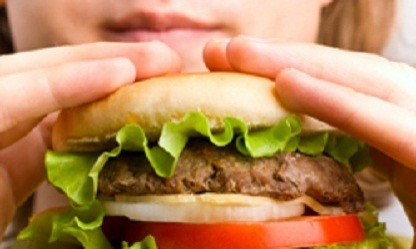Meat Eating Contributed To Human Spread Across Globe, Research

Meat eating helped early humans spread across the globe and contributed to a population boom, according to a new study. Researchers found that a protein-rich diet makes breast milk more nutritious and allows children to wean earlier, which shortened birth time and allowed women to have more children.
Populations grew faster as birth time shortened, which allowed humans to spread out and settle other parts of the planet, according to the study.
The access to a diet that is rich with animal protein is what makes it possible for [humans] to, over many generations, shorten the time between births, Elia Psouni, study author and associate professor of developmental psychology at Lund University in Sweden, told LiveScience. You wean faster, you can become pregnant faster and give birth to more offspring.
Early human brains also grew because of the higher protein diet, which necessitated hunting, an important step in human evolution, researchers said.
Children breastfeed until their brains develop to a certain point, researchers said, which caused the brains to develop faster and allowed children to wean sooner.
Researchers analyzed the average breastfeeding time of 67 species in order to see how human breastfeeding time compares to other animals, and found that animals that get 20 percent or more of their daily calories from meat wean earlier than non-carnivores.
The World Health Organization recommends children receive breast milk until they are approximately 2 years old -- a relatively short amount of time compared to our closest relatives, the great apes, which breastfeed their young for up to six years, researchers said.
Meat is a much more significant part of the human diet than the great ape diet. Approximately 20 percent of the calories humans consume come from meat, compared to only 5 percent in the great ape diet, according to the study.
Previous research concluded that environmental and social factors such as parenting and family size cause shorter breastfeeding times, Psouni said, but the current study gave a biology-based conclusion.
That humans seem to be so similar to other animals can of course be taken as provocative, she said in a statement. We like to think that culture makes us different as a species. But when it comes to breast-feeding and weaning, no social or cultural explanations are needed; for our species as a whole it is a question of simple biology.
Psouni stressed that her observations are not meant to discourage vegetarianism today, but simply to show how eating meat contributed to human development.
The study provides an explanation of how carnivory seems to have impacted on human evolution, she said. There are no implications for modern-day diets.
The journal PLoS ONE published the study on Wednesday.
© Copyright IBTimes 2025. All rights reserved.





















